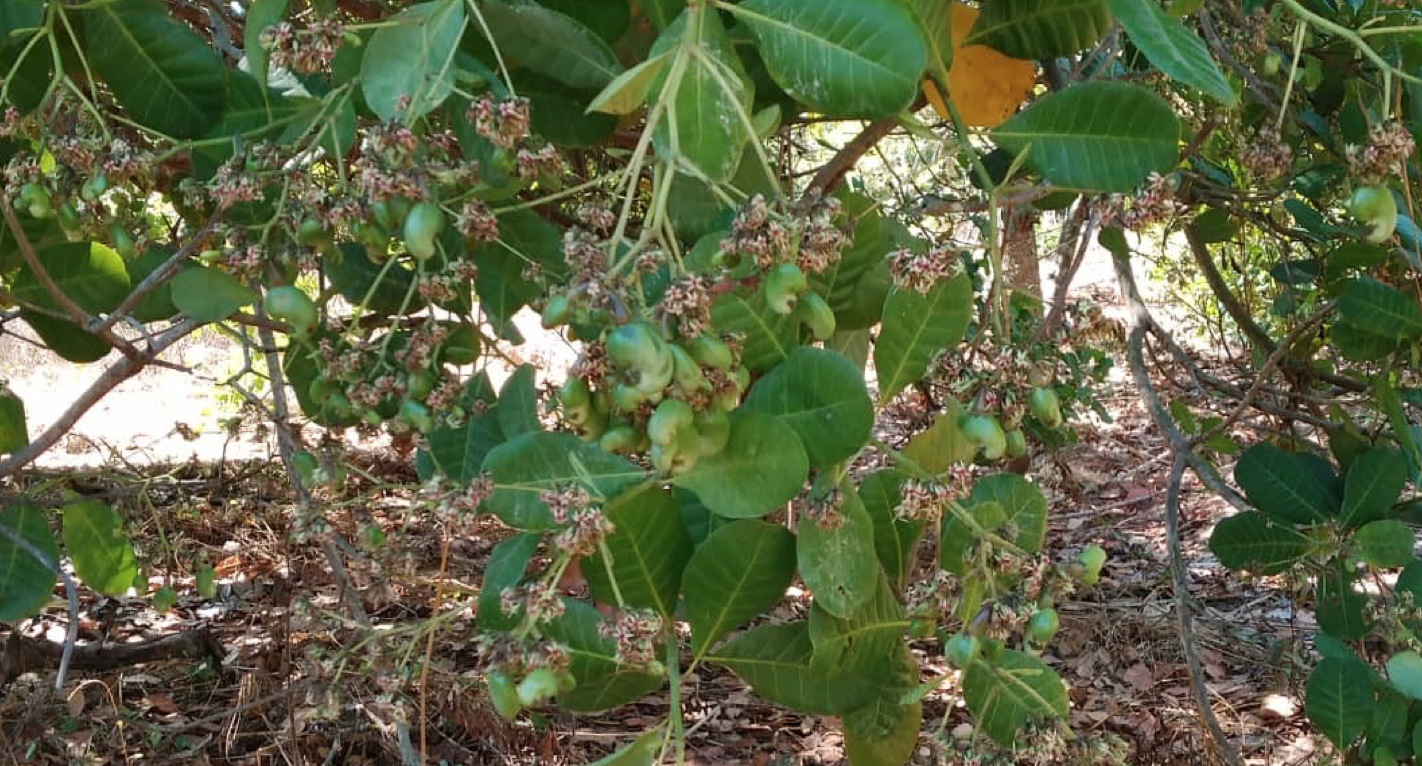Cashew Farming in Southern Tanzania
Those of our friends and partners will know the importance of cashew nuts in our region. Stopping at the side of the road to buy a freshly-roasted bag of cashews for a journey is a local delight.
The moderate climate and sandy soils of southern Tanzania, where the DMDO works, make cashew farming an essential and highly dependable cash crop for smallholders and large-scale growers alike and the lives of many communities revolve around the seasonal care and harvest regime of cashew trees.
Salumu Mpiko protects his cashew trees from the dreaded Helopeltis bug.
Cashew Farming Season
Whole communities turn on the rhythm of the cashew tree. For months, men walk or cycle many kilometres each day to reach their distant fields, spending long hours away from their households. The cashew season dominates village life - it is the work, the worry, and the hope of the year.
May to July: Farmers face the menace of Helopeltis bugs. These tiny insects pierce young cashew shoots and flowers, leaving blackened scars. Unchecked, they cause nuts to shrivel and drop, wiping out a harvest before it even sets. Farmers clean their farms and guard the flowers from these bugs with protective sprays.
August to September: Cashew trees begin to bear fruits. Farmers monitor their crops closely to ensure healthy development. The young fruits remain at risk from pests.
September: Harvest season. Farmers collect mature cashew nuts and prepare for market.
October to December: Market. Cashew sales in Tanzania are conducted through auctions, where buyers compete and a unified price is set for all farmers. These auctions typically begin in October.
Water from a prepaid metre is used as the basis of cashew harvest protection.
A Young Cashew Farmer in Mikongi
Salumu Mpiko, a 35-year-old farmer from Mikongi village, Mandwanga Ward in Mtama District Council, is one of those smallholders. He lives with his wife and four children. With four hectares of cashew trees.
Before DMDO brought water to Mikongi village, farmers struggled during the cashew farming season as the dry period made it difficult to access water. They were often forced to travel long distances to fetch water for their farms.
‘‘In the past, we had to travel very long distances to fetch water for spraying cashew trees which was very costly but after getting this water we now enjoy much greater convenience.’’ Salumu says
Harvest Expectations
If conditions remain favourable, adequate rainfall, timely pesticide application and strong flower retention, Salumu Mpiko expects to harvest at least 4 tonnes of cashew nuts from his four-hectare farm this season. This would mark a significant milestone in his farming journey and provide a strong financial foundation for his household.




